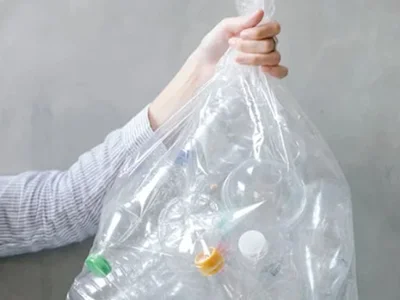Reclaim Waste Things To Know Before You Buy
Table of ContentsThe Ultimate Guide To Reclaim WasteSome Ideas on Reclaim Waste You Need To KnowThe Single Strategy To Use For Reclaim WasteReclaim Waste Things To Know Before You Get ThisRumored Buzz on Reclaim Waste
Explore the types, events, and kinds of fluid waste. Domestic sewage waste refers to the waste and products from a household septic system. This type of waste is developed by humans in homes, schools, and other structures. This only consists of sewage-disposal tanks that have a drainpipe field. The proper monitoring and disposal of domestic sewer waste require liquid waste to be transferred to a sewer treatment plant where the correct approaches and equipment are put on cleanse and throw away waste.
Commercial waste commonly includes prospective hazards, such as flammable materials or a blend of fluid and solid waste products, and requires an advanced and comprehensive disposal procedure. The disposal of business waste commonly involves the filtering of waste prior to transportation to make certain safe and proper disposal. Industrial waste is created from byproducts and runoff of commercial procedures and manufacturing.
This type of waste can not make use of the exact same sewer administration transportation or processes as septic or commercial liquids. The commercial waste management process requires the evaluation and screening of fluid waste before it undertakes the disposal procedure (liquid waste removal melbourne). Runoff waste is the liquid waste that comes from runoff and excess stormwater in highly inhabited locations or cities
Overflow waste can cause contamination and flooding if not dealt with appropriately. Making sure correct waste monitoring can stop disasters and lower ecological damage.
Things about Reclaim Waste
Get in touch with PROS Providers today to learn more about our waste administration and disposal services and the appropriate methods to take care of the fluid waste you create.
(https://pubhtml5.com/homepage/kwjac/)Do you understand what happens to your water when you disengage, flush the commode or drain pipes the cleaning machine? No? Well, it's worth understanding. This supposed 'wastewater' is not only a crucial source but, after therapy, will certainly be launched to our land, waterways or the sea. Utilized water from bathrooms, showers, bathrooms, kitchen area sinks, washings and commercial procedures is called wastewater.

water made use of to cool down machinery or tidy plant and equipment). Stormwater, a type of wastewater, is runoff that streams from agricultural and urban locations such as roofings, parks, gardens, roads, paths and gutters right into stormwater drains, after rainfall. Stormwater flows untreated directly to local creeks or rivers, ultimately reaching the sea.
Not known Incorrect Statements About Reclaim Waste
In Queensland, many wastewater is treated at sewer therapy plants. Wastewater is carried from domestic or industrial websites via a system of drains and pump stations, called sewerage reticulation, to a sewer read what he said therapy plant. Neighborhood federal governments develop, preserve and run most sewer treatment plants. Operators are accredited under the Environmental Protection Act 1994 to discharge treated wastewater at an appropriate environmental requirement into waterways.
The Division of Natural Resources recommends city governments about managing, operating and keeping sewage systems and treatment plants. In unsewered locations, city governments may need householders to install private or home sewer treatment systems to treat residential wastewater from commodes, cooking areas, restrooms and washings. The Department of Natural Resources authorises using household systems when they are confirmed to be efficient.
In some brand-new subdivisions, treatment of some stormwater to get rid of trash, sand and crushed rock has actually started utilizing gross pollutant catches. Wastewater treatment occurs in four phases: Eliminates solid issue.
Utilizes little living organisms knows as micro-organisms to damage down and remove continuing to be liquified wastes and fine fragments. Micro-organisms and wastes are incorporated in the sludge.
The Facts About Reclaim Waste Revealed
Nutrient elimination is not available in all sewage treatment plants since it needs expensive specialized tools. It is becoming a lot more typical in Queensland. Clear fluid effluent generated after therapy may still include disease-causing micro-organisms. If this effluent is released into waterways such as rivers or the sea, the micro-organisms will ultimately die out.

Most wastewater moves right into the sewerage system. Under the Act, neighborhood governments carry out authorizations and licences for environmentally appropriate tasks (ERAs) involving wastewater launches that may have a local effect.
The Reclaim Waste Diaries
Otherwise, samples are considered laboratory analysis. Usually several examinations are needed to establish the degrees of each of the various contaminants such as oils, heavy steels and pesticides in water. Monitoring gives accurate details regarding water top quality and can verify that permit problems are being met. The information acquired through tracking supplies the basis for making water top quality decisions.